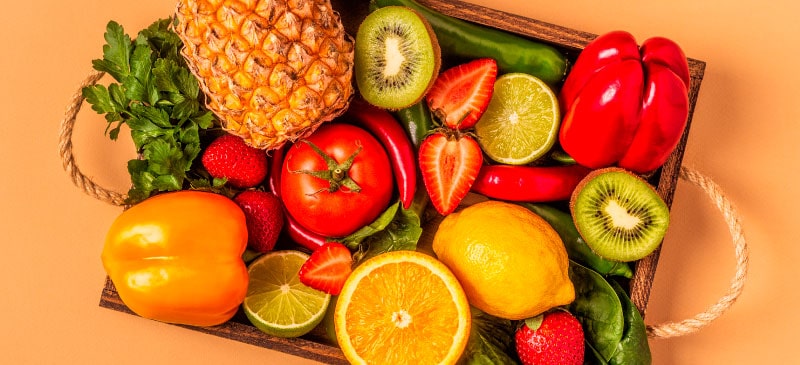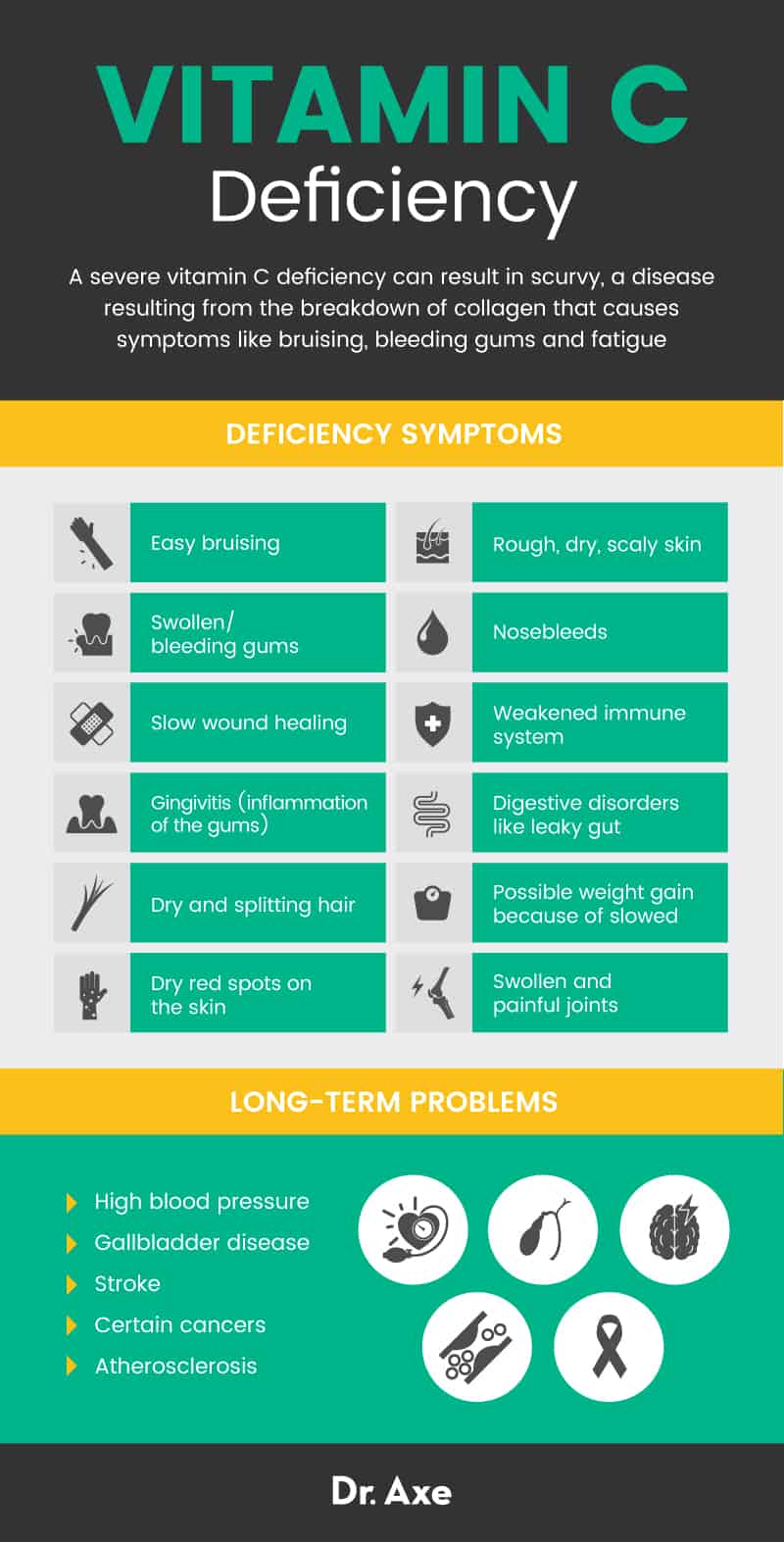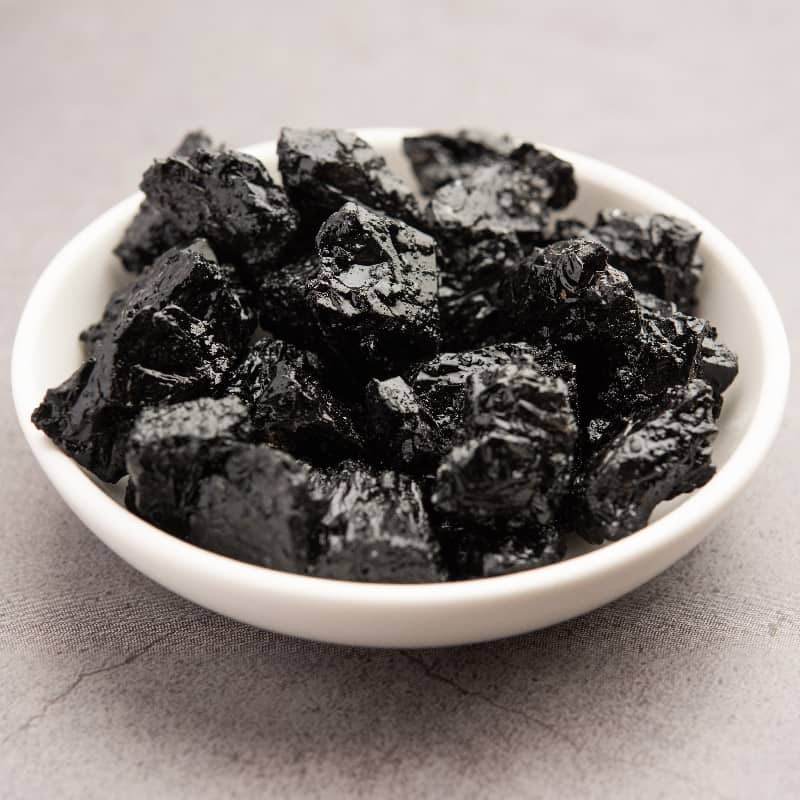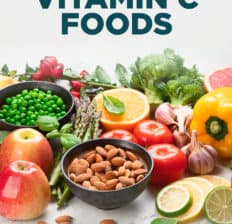This Dr. Axe content is medically reviewed or fact checked to ensure factually accurate information.
With strict editorial sourcing guidelines, we only link to academic research institutions, reputable media sites and, when research is available, medically peer-reviewed studies. Note that the numbers in parentheses (1, 2, etc.) are clickable links to these studies.
The information in our articles is NOT intended to replace a one-on-one relationship with a qualified health care professional and is not intended as medical advice.
This article is based on scientific evidence, written by experts and fact checked by our trained editorial staff. Note that the numbers in parentheses (1, 2, etc.) are clickable links to medically peer-reviewed studies.
Our team includes licensed nutritionists and dietitians, certified health education specialists, as well as certified strength and conditioning specialists, personal trainers and corrective exercise specialists. Our team aims to be not only thorough with its research, but also objective and unbiased.
The information in our articles is NOT intended to replace a one-on-one relationship with a qualified health care professional and is not intended as medical advice.
Top 20 Vitamin C Foods that Can Boost Immunity and Fight Disease
September 19, 2023

There are few vitamins that boast as many health benefits as vitamin C. Doubling as both an essential nutrient and powerful antioxidant, eating vitamin C foods can have a huge impact on your health from the inside out — quite literally.
In fact, vitamin C (or ascorbic acid) works to improve everything from skin health to immune function and just about everything in between. By incorporating just a few servings of vitamin C foods (such as bell peppers and strawberries) into your diet, it’s simple to take advantage of all the health benefits that this water-soluble vitamin has to offer.
So how much vitamin C do you need per day, and how can you maximize your intake to reap the rewards? Let’s take a closer look.
What Is Vitamin C?
Vitamin C, also known as ascorbic acid, is a water-soluble vitamin that acts as an antioxidant and plays a role in maintaining the body’s connective tissue. Vitamin C can also help protect your heart, repair and restore tissues, and boost the absorption of other nutrients in the body.
Vitamin C foods have long been recognized for their powerful health-promoting properties. In fact, these super nutritious fruits and vegetables are often considered staples in many forms of holistic medicine, including Ayurveda and Traditional Chinese Medicine.
Found primarily in fruits and vegetables, vitamin C is abundant throughout the diet, though there are some who lack this key vitamin.
A vitamin C deficiency can wreak havoc, causing symptoms like easy bruising, bleeding gums, fatigue, weakened immunity and, in severe cases, scurvy. In fact, around the 18th century, scurvy became a serious problem for the British navy.
This condition stems from a severe deficiency in vitamin C and can cause issues like bleeding gums, bruising and even death. At one point, scurvy was even considered the leading cause of death among British sailors.
Because your body doesn’t store vitamin C or make it on its own, it’s absolutely vital to include plenty of vitamin C fruits and vegetables into your daily diet. The benefits of vitamin C may include better immune function, plus a reduced risk of conditions like gout and cardiovascular disease.
Related: Astaxanthin Benefits Better than Vitamin C?
Top Vitamin C Foods
The best way to meet your vitamin C needs is by incorporating a few vitamin C foods into your diet.
What foods have vitamin C? Here are the top vitamin C superfoods to start stocking up on, according to the U.S. Department of Agriculture National Nutrient Database, many of which are low in calories but full of nutrients beyond just vitamin C:
1. Black Currant
1 cup: 203 milligrams (338 percent DV)
Black currant is loaded with vitamin C, but that’s not all. It also provides a good amount of manganese, iron, potassium and other micronutrients, including anthocyanins.
2. Red Pepper
1 cup: 190 milligrams (317 percent DV)
Red pepper is rich in many essential nutrients, including vitamin C, and like other spicy foods, it can support heart health, a healthy metabolism, digestion, immune function and more.
3. Kiwifruit
1 cup: 164 milligrams (273 percent DV)
Kiwi nutrition is chock-full of antioxidants — including vitamin C — along with vitamins K and E, potassium, copper, and folate. This fruit is beneficial for skin, respiratory, eye, gut, heart, bone and immune health. It also may be able to help with sleep.
4. Guava
1 fruit: 126 milligrams (209 percent DV)
Guava is a high-antioxidant fruit that provides a healthy dose of vitamin A and several minerals and B vitamins, in addition to vitamin C. As such, it’s great for the immune system, and guava has been shown to benefit blood pressure, digestion, blood sugar, heart health, fertility and more.
5. Green Bell Pepper
1 cup: 120 milligrams (200 percent DV)
Green bell pepper nutrition is certainly a vitamin C powerhouse, and that’s why bell peppers are great for disease prevention and weight maintenance. These peppers also supply B vitamins, vitamin A and vitamin K.
They’re able to support eye health, mental health, skin, immunity and healthy pregnancy.
6. Orange
1 large: 98 milligrams (163 percent DV)
As a top vitamin C food, orange nutrition can do a lot for health. When you take into account that his extremely popular fruit also supplies plenty of folate, thiamine, potassium, vitamin A, calcium, vitamin B6, pantothenic acid, fiber and magnesium, oranges can do everything from helping stave off and/or treating the common cold to potentially combating cancer, improving heart health, boosting brain function and keeping skin healthy.
7. Strawberries
1 cup: 89 milligrams (149 percent DV)
Rich in antioxidants, strawberry nutrition has more than just vitamin C to tout. For example, strawberries provide a healthy dose of manganese, B vitamins, iron, potassium, vitamin K and more.
This delicious fruit helps protect the body against cancer, heart disease, skin damage, neurodegenerative diseases and more. Plus, strawberries are high in fiber and can aid detoxification.
8. Papaya
1 cup: 87 milligrams (144 percent DV)
Rich in vitamin C, vitamin A, vitamin E and vitamin K, papaya benefits digestion, heart health and more. It’s also a great food to eat for people with asthma and has demonstrated an ability to fight viral infections.
9. Broccoli
1 cup, raw: 81 milligrams (135 percent DV)
One of the top vitamin C vegetables, broccoli nutrition also supplies fiber; vitamins K, A and B6; folate; manganese; potassium; phosphorus; magnesium; and calcium. Plus, as a cruciferous vegetable, it’s also one of the top known cancer-fighting foods around.
10. Kale
1 cup, raw: 80 milligrams (134 percent DV)
A true superfood, the health benefits of kale stem from its high supply of vital micronutrients. It’s especially high in vitamin K and vitamin — in addition to vitamin C. That’s why it’s so valuable for bone health, along with detoxing, boosting immunity and promoting healthy development.
11. Parsley
1 cup: 80 milligrams (133 percent DV)
People don’t typically think of herbs and spices when they think vitamin C foods, but parsley is one of those common herbs that definitely packs a vitamin C punch. It’s also a well-known digestive aid, provides plenty of bioflavonoids and can help improve kidney health.
12. Pineapple
1 cup: 79 milligrams (131 percent DV)
The benefits of pineapple are plentiful, thanks in no small part to its vitamin C content — not to mention several other essential nutrients.
Pineapples are high in fiber, which can aid digestion, and the vitamin C in particular is great for a healthy immune system. Plus, research shows pineapple holds potential benefits for fertility, the heart, asthma sufferers, mental health and more.
13. Brussels Sprouts
1/2 cup, cooked: 48 milligrams (81 percent DV)
Another cruciferous vegetable, Brussels sprouts have strong anti-cancer effects, and when you combine the power of Brussels sprouts nutrition overall, you can see just how much this veggie can do.
Brussels provide bone-building vitamin K, combat inflammation and heart disease, and so much more.
14. Cauliflower
1 cup, raw: 46 milligrams (77 percent DV)
You probably aren’t surprised to see cauliflower on the same list as broccoli, and that’s not a coincidence. While it’s a bit lower in vitamin C than broccoli, this similar cruciferous veggie provides many of the same nutrients and has many of the same benefits.
Cauliflower is particularly known for its high supply of phytonutrients, and we know those compounds benefit just about every aspect of health.
15. Mango
1 cup: 46 milligrams (76 percent DV)
Mango nutrition is bursting with vitamin C, along with fiber, antioxidants, copper, vitamin A, folate, B6, vitamin E, potassium and vitamin K. It also provides zeaxanthin, quercetin, astragalin and beta-carotene.
16. Lemon
1 fruit: 45 milligrams (74 percent DV)
Citrus fruits are among the top vitamin C foods, lemons included. Historically used to treat and prevent scurvy thanks specifically to its vitamin C content, lemons also boost immune, heart, kidney and skin health.
17. Grapefruit
1/2 fruit: 38 milligrams (64 percent DV)
Like oranges, kiwi, lemons and other citrus, grapefruit benefits come from the fruit’s nutrient density. High in vitamins A and C, along with B vitamins, potassium, calcium and magnesium, grapefruit is good for weight management, cellulite reduction, fighting cancer and perhaps even reducing the risk of strokes.
18. Honeydew
1 cup: 32 milligrams (53 percent DV)
Less heralded than the similarly healthy cantaloupe, honeydew deserves some love. This less preferred fruit provides all the benefits of vitamin C and also helps you stay hydrated.
19. Peas
1 cup, cooked: 23 milligrams (38 percent DV)
Believe it or not, green peas are high in vitamin C and several other important nutrients. They’re high in protein, fiber, vitamin K, manganese, thiamine, vitamin A, folate, phosphorus, B6, niacin, magnesium, riboflavin, copper, iron, zinc and potassium.
As such, peas can aid in weight loss, provide a great source of plant protein, support blood sugar control, promote healthy digestion and even protect against cancer.
20. Tomatoes
1 cup, raw: 23 milligrams (38 percent DV)
One of the most popular nightshade vegetables, tomatoes double as an anti-inflammatory and high-antioxidant foods. Tomato nutrition benefits everything from bone health to skin, eye, heart and immune health.
In addition to vitamin C, tomatoes are high in vitamins K, A and B6; potassium; folate; and manganese.

Benefits of Foods High in Vitamin C
1. Promote Healthy Skin and Collagen Formation
Including plenty of vitamin C foods in your diet can help keep your skin glowing and healthy. In fact, a major study published in the American Journal of Clinical Nutrition looked at the diets of over 4,000 women and found that consuming more high vitamin C foods was associated with a lower risk of wrinkles and dryness.
There is also some evidence suggesting that using a topical vitamin C serum could decrease the amount of redness following UVB exposure and may decrease sunburn cell formation by up to 60 percent.
Research indicates that part of the reason vitamin C foods can be so beneficial is because the nutrient is used to form collagen, an important protein used to form the skin, tendons, ligaments and blood vessels. Collagen is especially important in aiding both wound healing and scar tissue formation.
One study from the University of Kiel in Germany even found that collagen could help improve skin elasticity and moisture, making it absolutely essential to fit plenty of vitamin C foods into your diet.
2. Improve Iron Absorption
Iron is a mineral that is vital to many aspects of health. Most importantly, it is a major component of the hemoglobin found in your red blood cells and can help supply the cells throughout your body with oxygen.
A deficiency in this key mineral can lead to iron deficiency anemia, a condition characterized by anemia symptoms like weakness, shortness of breath and dizziness.
Consuming vitamin C foods alongside iron can boost absorption of the important mineral to help prevent a deficiency. In fact, one study actually concluded that taking 100 milligrams of vitamin C with a meal increased iron absorption by a whopping 67 percent.
3. Reduce Risk of Gout
Gout is a painful form of arthritis that can cause severe redness and tenderness in the joints, especially in the big toe. Although anti-inflammatory medications are often used to relieve symptoms during flare-ups, it’s typically recommended to make long-term diet and lifestyle changes to prevent recurrences of this unpleasant condition.
Adding more foods that contain vitamin C into your diet is an easy and effective way to reduce your risk of gout.
According to one massive study published in the Archives of Internal Medicine, a high intake of vitamin C was associated with a significantly lower risk of gout. Not only that, but researchers found that taking at least 1,500 milligrams of supplemental vitamin C each day cut the risk of gout nearly in half.
4. Fight Free Radical Damage
Vitamin C is one of the primary antioxidants that can protect against damage caused by harmful molecules called free radicals, as well as toxic chemicals and pollutants like cigarette smoke.
Research indicates that free radicals can build up inside the body and contribute to the development of conditions such as cancer, cardiovascular disease, diabetes and arthritis. These disease-causing molecules are generated over time due to factors like a poor diet, unhealthy lifestyle, and long-term exposure to environmental pollutants and toxins.
5. Boost Immune Function
For many people, reaching for the high vitamin C foods and supplements is almost second nature when they start feeling under the weather. Rich in antioxidants, the immune-boosting benefits of this powerful vitamin have been well-documented in recent years.
In fact, one of the hallmark signs of a deficiency is a weakened immune system.
One study out of Switzerland actually found that getting enough vitamin C can help reduce symptoms and shorten the duration of respiratory infections, such as the common cold, bronchitis or sinusitis. Plus, it also could improve the outcomes and reduce the incidence of other conditions, like pneumonia, malaria and diarrhea infections.
6. Enhance Cancer Treatment
Vitamin C is jam-packed with cancer-fighting antioxidants and has been shown to have powerful anticancer properties in both in vitro studies and animal models. Vitamin C foods like lemons and oranges have also been found to help block the growth and spread of cancer cells and may also be associated with a lower risk of cancer development.
Not only that, but vitamin C may also have some benefits when used alongside traditional cancer treatments. A large review of 76 studies revealed that administering vitamin C intravenously could improve time to relapse, reduce tumor size, enhance quality of life and decrease symptoms associated with chemotherapy, such as nausea, depression and fatigue.
7. Support Heart Health
Ranking as the leading cause of death, it’s estimated that cardiovascular disease accounts for nearly 32 percent of deaths around the world. Switching up your diet and lifestyle is one of the most effective ways to ward off heart-related issues, and some research even shows that including just a few servings per day of vitamin C foods could help reduce several risk factors to support a healthy heart.
One large study out of Finland concluded that people who took at least 700 milligrams of vitamin C daily had a 25 percent lower risk of developing heart conditions than people who did not take supplemental vitamin C.
Similarly, another study showed that taking just 500 milligrams of vitamin C daily significantly reduced both triglycerides and levels of bad LDL cholesterol, two major contributors to heart disease.
Vitamin C consumption also can protect blood vessel lining and help prevent permeability that can lead to serious heart problems and other inflammatory diseases.
Related: Malic Acid Benefits Energy Levels, Skin Health & More

Dosage
The recommended intake of vitamin C can vary by age and gender. Here are the recommended dietary allowances for vitamin C according to the National Institutes of Health:
- 0–6 months: 40 milligrams daily
- 7–12 months: 50 milligrams daily
- 1–3 years: 15 milligrams daily
- 4–8 years: 25 milligrams daily
- 9–13 years: 45 milligrams daily
- 14–18 years: 75 milligrams daily for males, 65 milligrams daily for females
- 19+ years: 90 milligrams daily for males, 75 milligrams daily for females
Individuals who smoke need an additional 35 milligrams of vitamin C daily. Vitamin C needs also increase in women who are pregnant and breastfeeding to 85 milligrams and 120 milligrams, respectively.
Vitamin C supplements are also available and can be found in vitamin C powder, tablet and capsule form. Possible vitamin C tablets benefits include increased immunity, better skin health and a reduced risk of deficiency.
However, unless advised by your healthcare professional, it’s often best to get your vitamin C from whole food sources rather than supplementation. Not only can these nutrient-dense foods provide an assortment of other important vitamins and minerals, but there is also a reduced risk of adverse side effects that may come with supplementation, like an increased risk of kidney stones in men.
Additionally, vitamin C foods are also typically rich in a wide array of other important nutrients, including fiber and antioxidants, as well as other vitamins and minerals. Therefore, it’s best to select natural sources of vitamin C instead of supplemental sources whenever possible to help meet your needs.
On the other hand, there seems to be no serious side effects even with high doses of vitamin C. With the exception of a slightly higher risk of kidney stones (in men only), most adults can safely take up to 2,000 milligrams per day of vitamin C and experience very mild stomach discomfort at most.
In terms of bioavailability, both seem to be roughly equivalent. According to one review published in the journal Nutrients, while some animal studies have shown a difference in the bioavailability of vitamin C foods vs. supplements, human studies have generally found that both are equally absorbed.
Recipes
Getting more vitamin C in your diet can be as easy as making an effort to eat extra servings of foods with the nutrient each day. The Office of Dietary Supplements indicates that people should get enough vitamin C simply by eating a variety of foods.
By switching up your menu to include more vitamin C fruits and veggies, it can be easy (and delicious) to meet your daily needs. Try adding a side salad full of vitamin C vegetables to one meal per day, or swap your sweet snacks for a fresh fruit salad instead.
Keep in mind, however, that it’s best to consume foods high in vitamin C raw instead of cooked whenever possible.
Research shows that cooking methods like boiling, simmering, sautéing, stir-frying and poaching can cause significant nutrient losses in foods with vitamin C. For example, one study showed that stir-frying broccoli slashed vitamin C content by 38 percent.
Looking for a few creative ways to spice up your meals and amp up your vitamin C intake? Here are a few recipes using some of the foods highest in vitamin C to help you meet your daily needs:
Risks and Side Effects
Vitamin C is not stored in the body, and excess amounts are excreted. As such, overdosing on this water-soluble vitamin is not generally a concern.
However, it is still important not to exceed the safe upper limit of 2,000 milligrams a day to avoid adverse symptoms and vitamin C side effects, such as stomach upset and diarrhea.
A recent study also found a link between taking vitamin C supplements and kidney stones in men, reporting that supplementation resulted in a significantly higher risk of kidney stones. If you have a history of kidney stones, you should consider consulting with your doctor before starting supplementation, or simply try increasing your intake of vitamin C foods and drinks to meet your daily needs instead.
Vitamin C supplements may also interact with certain types of medications. In particular, they may interact with estrogen, protease inhibitors, certain anticoagulants, niacin and aluminum-containing medications, like phosphate binders. They’re also not recommended during cancer treatments, as they can interact poorly with some cancer treatment medications.
If you currently take any of these medications, talk to your doctor before starting supplementation.
Related: How Much Is Too Much Vitamin C?
Final Thoughts
- What does vitamin C do? Vitamin C is a water-soluble vitamin that acts as an antioxidant and plays a role in immune function, free radical reduction and more.
- Promising research suggests that increasing your intake of vitamin C could help promote collagen formation, enhance cancer treatment, boost immunity and decrease the risk of conditions like gout.
- What foods are high in vitamin C? Although it can be found in a number of healthy foods, the highest vitamin C foods are generally fruits and vegetables, such as bell peppers, kiwis, guavas and black currants.
- While supplementation is available, including a good variety of foods with vitamin C can help you easily meet your daily needs.
- Opt for raw instead of cooked when possible to maximize the vitamin C content of your favorite foods.











